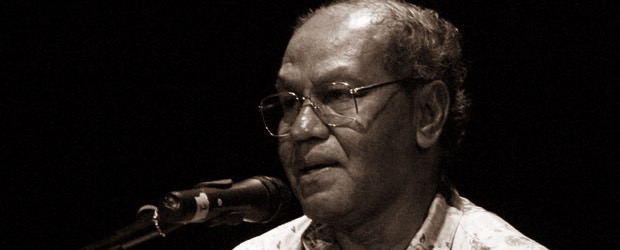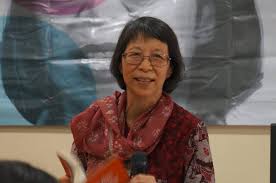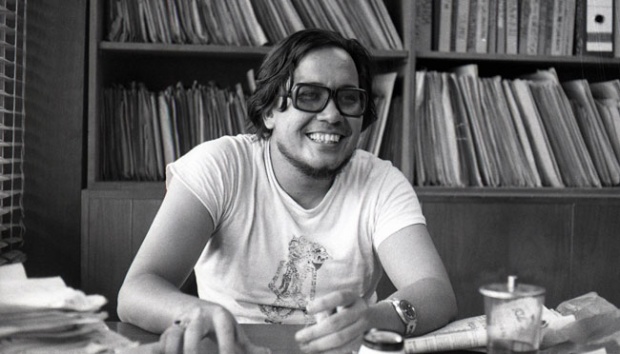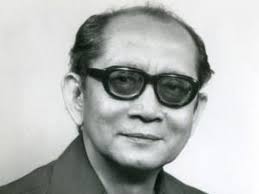We are not brave enough to say “This is what we think”
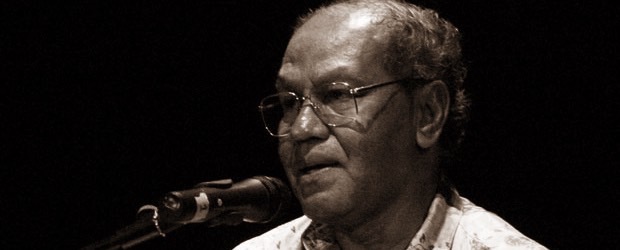
Click here for Bahasa Indonesia version
Siasat: Revisiting the discourse that you offered in the early 1990s on the indigenisation of the social sciences, to what end did that debate finally run its course?
Ignas: Yes, (because) there were no friends or colleagues who followed up on that concept. I think it’s true that we are different from Malaysia. I have a friend in Malaysia, a historian, I forget the name, but I remember he said, “Ignas, since we started writing on Malaysian history, no bule (caucasian foreigner) has been brave enough to write on the same topic.” This is some sort of excessive nationalism, but there is some intent towards that concept over there.
I believe that we don’t have that over here. That is why we are elated every time we are able to quote from a liberal or Marxist book in order to strengthen our argument, but we don’t attempt to construct some form of our own argument, whereas that had already been accomplished by our intellectuals from before we had been born. For example, take Soepomo in the legal studies, or Soedjatmoko in historiography; they had already attempted this, but weren’t picked up by future generations
Siasat: Is this a debate that is felt to be unpractical?
Ignas: No, I think this is because in Indonesia there has not been any intellectual history. No intellectual history in our political history. We have social history, but we have not realised that intellectuals must have their own history that traverses from period to period, and is connected or disconnected from one age to another; this is still missing. For example, the reprocessing of ideas from Soekarno or Hatta on, let’s say, nationalism for Soekarno, or cooperatives for Hatta—this has not been done, because in their time they conceptualised in a quite serious way. I believe that the postcolonial state had already been attempted, or I believe that postcolonial theory had already started, had already been formulated capably by people like Soekarno. But we did not continue this train of thought, and we only began to accept when it is a foreigner that speaks about postcolonial theory.
Siasat: On the idea of indigenisation, what’s your response if people then define this as primordialism within the social sciences?
Ignas Kleden: My response is that it is not primordialism, but an attempt to decouple one’s self from the epistemological dependency on the Western sciences. I believe that we are epistemologically dependent, or in more vulgar terms, “colonised.”
We are not brave enough to say, this is what we think, and then argue seriously on that. So, I feel that, even within NGO circles, I think that NGOs are preoccupied with creating commitment, but with no theory. Pushing for commitments, but not supported by theory, and I think that that can be understood. They are actually social institutions that conduct various activities that push for activism in various sectors that they perceive as important. That is true. But if you ask about knowledge production, then for me that’s tough. Because for them, the problem is whether or not there is a commitment. Is it possible for theory to exist?
Siasat: What about the critique from Western scientists on Indonesian scientists, that they are perceived to only be Indonesian specialists? In that our scientists have never been brave enough to research a subject that is outside of Indonesia
Ignas: I think there’s some truth to that, and I also understand the predicament, because, for example, if you must write about Latin America, then you must learn Spanish.
Siasat: I think the problem is that our audience, that is, fellow social scientists, they still see the ability to proficiently comprehend theory as the benchmark for greatness. That is what I feel, even with my own friends. So, in a nutshell, the more we comprehend Western theory, the more we are perceived as being greater.
Ignas: Yes, but the comprehension of theory is not expressed through speeches or on theory itself, but rather in the application of theory within research. That, I think, is where we misunderstand, that we talk theory only when we write a chapter on theory. It’s interesting, but I don’t think that it is very useful for the transformation of social sciences. People must apply theory directly within research practices.
Siasat: If you look back to the New Order, what social sciences were required at that time? Especially for civil society?
Ignas Kleden: In NGO circles, I think that there wasn’t anyone clear thought on what they actually desired. They too talked about transformative social science, but this was not applied in research or in theorisation. It was limited to seminars and get-togethers but had not become a form of theory building, let alone theory that is applied in their various research. But they emphasise that they have conducted research through a transformative approach.
So, the aspirations were there, and we all desired at that time, with the eagerness of youth, we truly desired for there to be a transformative social science, but how that was to be implemented, and how that could be made possible, at that time we did not really know.
Siasat: Moving on to the transitional era, 1998, 2000, and so on. Many people have said that civil society is actually confused about what to do, what to work on, or what theories or thoughts to use. What do you think?
Ignas Kleden: I think that there are several new things that they have done within their activities. For example, we talk about indigenisation in its relation to theory, but in practice, what they do is translate that, for example into legal advocacy, yes, they do that, and quite seriously as well. I know up close and very well, because my youngest sibling, Emil, he became secretary-general of AMAN (Aliansi Masyarakat Adat Nusantara/Indigenous Peoples’ Alliance of the Archipelago) for 6 years, and they truly fight to defend. Customs and customary rights must be paid attention to again, and must not be steamrollered by some form of general instruction. We must be careful with that.
Siasat: Now, as a closing statement, if the indigenisation of the social sciences is pushed again as discourse, do you think it will still be relevant?
Ignas: I think that indigenisation must now be done in practice. If we only confer, it will not be effective.
For example, we must do what Sartono did in historiography. Sartono did not really theorise much about indigenisation, but he demanded that the writing of the history of the Indonesian people be Indonesia-centric, that it be empirical and non-ideological. This is what he suggested to be done, even though he himself did not construct a grand theory on the indigenisation of historiography.


